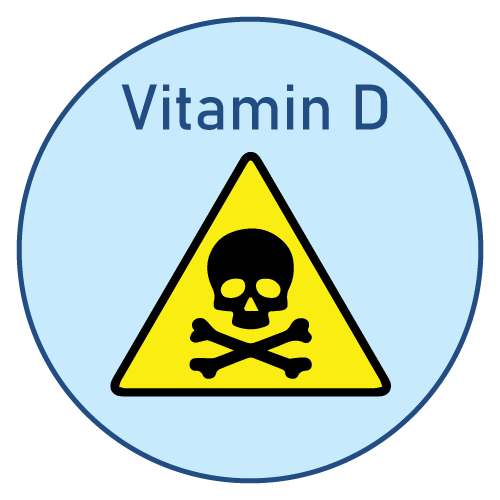| Name | Calcitriol |
| Classes |
Dermatological/Topical Agent Nutritional Supplement Antipsoriatics |
| Diseases |
Dialysis Hormonal Disorder Hyperparathyroidism (Overactive Parathyroid) Hypocalcemia (Low Calcium) Kidney Disease |
Calcitriol
Calcitriol is a synthetic vitamin D analog that aids in the control of calcium absorption and use in the body. Calcitriol comes in capsules with 0.25 mcg or 0.5 mcg calcitriol, as well as an oral solution with 1 mcg/mL calcitriol.
Calcitriol is indicated in the following conditions-
- Secondary hyperparathyroidism and resultant metabolic bone disease in patients with moderate to severe chronic renal failure
- Hypocalcemia and the resultant metabolic bone disease in patients undergoing chronic renal dialysis.
- Hypocalcemia in patients with hypoparathyroidism
- Dialysis Patients: The starting dose of Calcitriol is 0.25 mcg per day. If the biochemical parameters and clinical indications of the disease condition do not respond well, the dosage may be increased by 0.25 mcg/day at 4- to 8-week intervals. Serum calcium levels should be checked at least twice weekly throughout this titration period, and if hypercalcemia is detected, the medicine should be stopped immediately until normocalcemia is achieved. Calcitriol doses of 0.25 mcg every other day may help patients with normal or slightly lowered blood calcium levels. The majority of hemodialysis patients respond to dosages of 0.5 to 1 mcg per day.
- Hypoparathyroidism: The suggested starting dose for Calcitriol is 0.25 mcg per day, taken first thing in the morning. If the biochemical markers and clinical signs of the condition do not respond satisfactorily, the dose may be increased every two to four weeks.
- Predialysis Patients: In adults and children patients 3 years of age and older, the recommended first dosage of Calcitriol is 0.25 mcg/day. If necessary, the dosage can be increased to 0.5 mcg/day.
- Pediatrics: The suggested first dosage of Calcitriol for pediatric patients under the age of three years is 10 to 15 ng/kg/day.
The following side effects were reported with the use of calcitrio
- weakness
- headache
- somnolence
- nausea
- vomiting
- dry mouth
- constipation
- muscle pain
- bone pain
- metallic taste
- Calcitriol overdosage causes hypercalcemia and, in certain cases, hypercalciuria; consequently, serum calcium should be measured twice weekly early in treatment while dosage is being adjusted. A decrease in blood alkaline phosphatase levels in dialysis patients frequently precedes the onset of hypercalcemia and may be an indicator of oncoming hypercalcemia.
- Chronic hypercalcemia is linked to an increase in serum creatinine in persons with normal renal function. While this is usually reversible, it is critical to pay close attention to the conditions that can contribute to hypercalcemia in such people.
- Calcitriol medication should always be begun at the lowest possible dose and raised only if the serum calcium level is closely monitored.
- Patients with normal renal function taking Calcitriol should avoid dehydration. Adequate fluid intake should be maintained.
Contraindication
Contraindicated in patients hypersensitive to any component of the formulation.
None known.
Contraindicated in-
- Hypercalcemia
- Vitamin D toxicity
 Bangla
Bangla English
English










